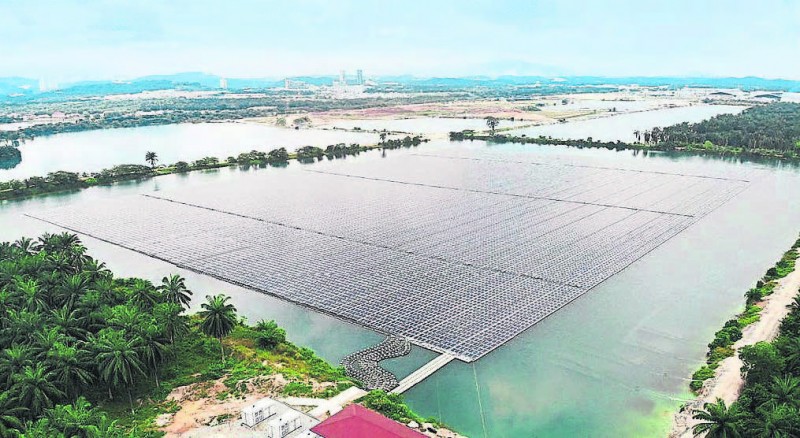
A COMPETITIVE and striving start-up environment in the country for green technology innovation is a real possibility. However, the nation as a whole and the individual players will have to surmount a few hurdles first before we can scale up on this front. Funding ranks high as one of the challenges.
Hence, it did not come as a surprise when clean energy specialist Solarvest Holdings Bhd called for greater funding in the renewable energy (RE) space to promote the development of clean energy technologies in Malaysia.
Group CEO and ED Davis Chong said with the right resources, industry players can create a competitive and striving start-up environment in the country for green technology innovation.
“More funding for this field of work is needed. We also need to start thinking holistically by first emphasising on identifying good companies and talents and helping them along the way to make their ideas come to fruition,” he told The Malaysian Reserve in an interview recently.
Chong highlighted that the group has begun such an initiative with the Solarvest Innovation Lab, a start-up programme to cultivate innovative developments in the field of green technology, financial technology and RE. It is also supposed to be in line with the clean energy verticals that Solarvest intends to venture into, which is one of the three pillars of the group’s five-year strategic plan.
This fits in with global trends. There is significant opportunity for green businesses in Asia, as the global environmental market expands in the coming years. With Japan and China in the lead, many other Asian countries are growing production of environmental, social and governance. Investments in RE are expanding, while there is potential for other sectors such as nature-based tourism, noted Asian Development Bank’s working paper entitled “Growing Green Business Investments in Asia and the Pacific” released in December 2020.
Solar Energy
Touching on solar energy, Chong said with commitments to reaching a 40% RE mix by 2040 and attaining net zero carbon emission by 2050, the group believes sustainability-driven policies will remain the focal point of the government in the years ahead.
He noted that the next phase in Malaysia’s energy transition is the move toward energy liberalisation. He pointed to the recent virtual power purchase agreement (VPPA) model mentioned by Prime Minister (PM) Datuk Seri Ismail Sabri Yaakob as a prime example of it.
At the same time, the industry is also hopeful of seeing the establishment of a peer-to-peer energy trading platform which allows prosumers (producer + consumer) and consumers to trade excess solar photovoltaic (PV) electricity without an intermediary.
“This will mitigate energy flow congestion in the grid and enhance energy and economic resilience by reducing the need for costly grid expansions in later phases,” he said.
Chong also added that as the centralised electricity market gradually opens, healthy competition will be introduced into the market which would benefit long-term innovation.
Beyond that, he said the developing regulatory structure in the energy sector will ultimately foster Malaysia as a mature RE player with the ability to provide clean energy security.
Previously, the government had approved the allocation and redistribution of a RE quota of 1,200 megawatts (MW) for solar resources as an initial step to boost the country’s commitment in the energy transition.
Ismail Sabri said with the VPPA, the government expects 14,000 job opportunities and new investments worth RM6 billion to be created to support the development of the country’s RE industry.
The PM said the new quota will be distributed to the implementation of programmes under existing mechanisms including the New Enhanced Dispatch Arrangement (NEDA) and solar installation programmes on roofs of buildings.
He added that it will be also distributed to exploration of new RE programme implementation methods such as solar park development, electricity supply for the purpose of new data centres, as well as green hydrogen generation.
Aside from that, he said there will be provision of a new option for the procurement of green electricity supply to corporate companies through the concept of the VPPA, starting in the fourth quarter of 2022, with a 600MW quota offer.
Elaborating further on the VPPA, Chong said this is certainly a welcome move for the industry and Solarvest. With the introduction of VPPA, corporations are able to make meaningful progress in their sustainability goals with the flexibility of procuring RE at a size-able scale without needing to be physically connected to the solar energy plant.
Source: https://themalaysianreserve.com/2022/10/11/solarvest-more-funding-needed-to-drive-green-technology-innovation/

